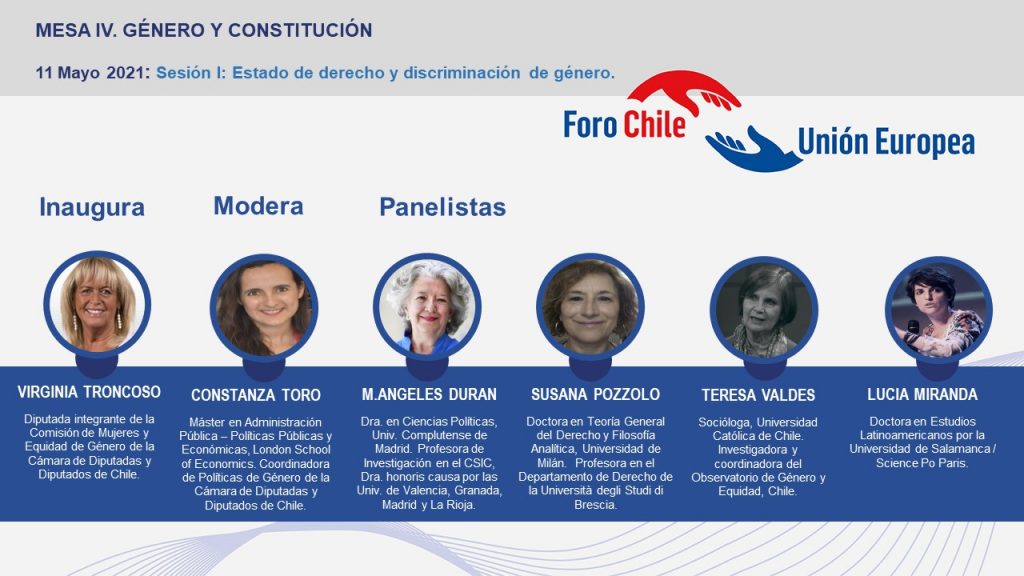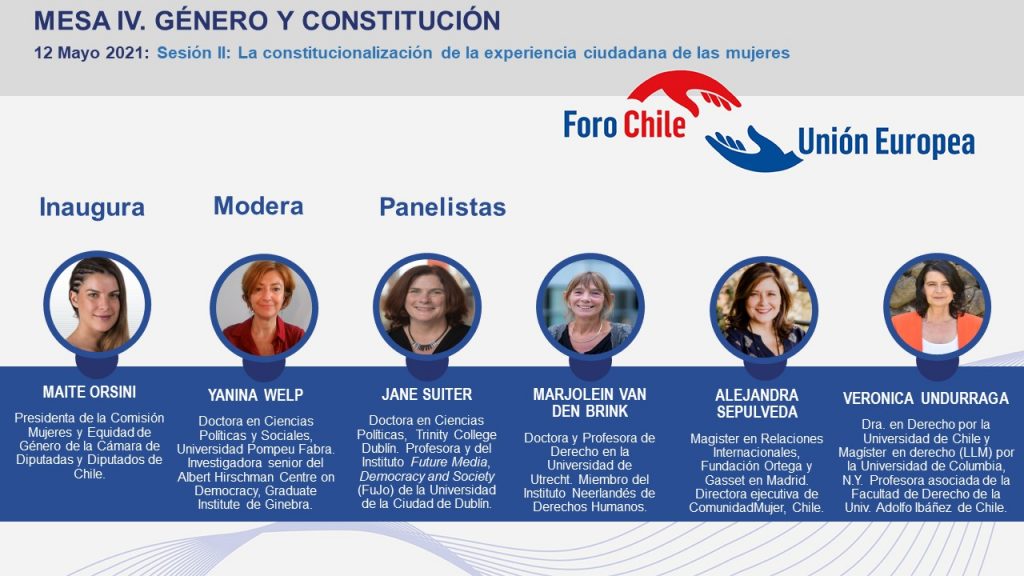Search Filters
May 18, 2022 | -
The humanitarian crisis in prisons in Latin America is marked by violence (torture and cruel, inhuman and degrading treatment), coupled with precarious health and nutrition, the absence of specific measures for the protection of vulnerable groups and the high level of overcrowding. This situation has been further aggravated by the health emergency caused by the COVID-19 virus.
A preliminary regional diagnosis concluded that in the case of Argentina there are difficulties in drawing attention to cases of institutional prison violence and for the victims to obtain reparation or recognition of their situation.
The Public Ministry of Defence, with the support of the EUROsociAL programme of the European Union, has designed a Registration, Communication and Comprehensive Care System for Victims of Institutional Prison Violence (SIRCAIVI), with the aim of identifying, registering and providing integral assistance to victims of institutional prison violence and their family members.
This system, which is being implemented in three countries in the region: Argentina, Chile and Costa Rica attempts settle a historic debt with people deprived of their liberty in terms of ill-treatment and torture in prisons with a specific public policy for which an effort has been made by various state institutions, through the constitution of the Inter-institutional Network against Institutional Violence-Table for dialogue and intersector action (Red-MEDAI).
Related articles:
Innovation to protect prisoners’ rights
COVID-19 and the prison system: actions in Latin America from a global agenda
September 2, 2021 | -
The Regional Meeting on Climate Change and Gender Equality will be held virtually at various sessions throughout September 2021 (a total of 8 sessions every Tuesday and Thursday during the month). These sessions will showcase the experiences, good practices, challenges and opportunities that seek to integrate gender equality in climate action in Latin America and the Caribbean (LAC) and the roadmap of the Gender Action Plan (GAP) of the Framework Convention on the United Nations on Climate Change (UNFCCC).
It is organised by the government of Chile in its capacity as COP25 Presidency through its Ministries of the Environment, Foreign Relations, Women and Gender Equity and is developed thanks to the support of the European Union, through its EUROsociAL+ and EUROCLIMA + programmes, with technical support from ECLAC as key strategic partners in climate action, joining up the dots between the 2030 Agenda and the UN’s Sustainable Development Goals. The project also has the collaboration of the United Nations System of Chile, with financial contribution from the Grand Duchy of Luxembourg.
The meeting is aimed at decision-makers at a national, regional and global level, the academic community, the media and civil society.
July 21, 2021 | 4:00 pm -
The spaces for dialogue between judicial institutions in Europe and Latin America promote good practices for a digitalised justice capable of dealing with cases of gender violence. In this sense, the Council of the Judiciary in Ecuador and the EUROsociAL+ programme organise the European Union-Latin America exchange webinar “Online trials in cases of gender violence”, which, in addition, seeks to guarantee compliance with judicial processes through the use of technological tools with a gender perspective.
This international meeting will delve into topics such as implementing the virtual module of protection measures in the national system; the Report by the Ibero-American Judicial Summit on COVID-19 and the administration of justice in the region; technology, criminal process, hearings and oral trials and the diagnosis of innovative practices for carrying out online trials in cases of gender violence. During this webinar, specific experiences such as the cases of Spain, the Dominican Republic or Chile will also be addressed.
June 1, 2021 | 5:00 pm Bruselas - 11:00 am Chile
The homeless population is growing, social differences are sharpening in the midst of a global crisis that requires a serious response from governments. Since 2018 Chile has led with the installation of a social policy based on housing as the first step to end the homeless situation, by allying itself with different countries in the region.
In this context, authorities in the field are summoned to participate in the high-level international Webinar entitled “Housing First in Times of Pandemic: a strategy to end the homeless situation”, which will take place next Tuesday, 1 June, 2021 from 11 a.m. to 1:30 p.m. in Chile/5:00 p.m. CET.
This meeting is organised by the European Union Programme EUROsociAL+ and the Ministry of Social Development and Family of Chile, which is part of the “Support in the installation of a new national strategy to overcome the homeless situation, implementing the Housing First model in Chile” project. The main objective is to share the results of the international experiences of Housing First in times of pandemic, emphasising the Chilean and Latin American context, in order to inspire and engage different public and private actors in the sustainability of these solutions.
The Governments of Chile, Uruguay, Costa Rica, Brazil, Paraguay, Colombia and Argentina, along with social organisations, politicians, businessmen and key actors in the housing sector, have all been summoned to share their reflections on their experience and what they have learnt.
May 25, 2021 | 11:00 am Chile - 5:00 pm Bélgica
The two sessions of the “Gender and Constitution” round table are part of the “Chile-European Union Round Table” seminar cycle organised by the European Union Delegation in Chile, the Chamber of Deputies of Chile, the Chilean Agency for International Cooperation (AGCID) and the Library of National Congress, with the support of the European Union’s EUROsociAL+ programme.
Throughout this encounter, some of the main unknowns and good practices articulated in relation to challenges posed today for public powers in the international arena will be put forward and discussed in depth. This is a result of the need to move forward with regards achieving, consolidating and maintaining sustainability.
The round table meeting is structured in two sessions:
- Tuesday, 25 May 2021 (11:00 Santiago de Chile-17:00 Brussels).
SESSION 1: The State’s promotion of sustainable development: economic model and social cohesion.
- Thursday, 27 May 2021 (11:00 Santiago de Chile-17:00 Brussels).
SESSION 2: Rights linked to sustainable economic development.
May 13, 2021 | 4:00 pm Bruselas - 11:00 am Buenos Aires
One year ago, the International Labor Organization, the European Union’s EUROsociAL+ programme and the Argentinian Ministry of Labour, Employment and Social Security decided to join forces and work together to develop a series of virtual forums for dialogue and exchange on measures that, in terms of health and safety at work, countries were adopting in the face of COVID-19, both at the most critical moment of the crisis and for the reactivation of production and the economy, and for the recovery of employment.
The round table meetings focused on four economic sectors that have been especially affected by the crisis – construction, transport, domestic work and wholesale markets, the common thread of each encounter being occupational health and safety measures, the role of social dialogue and the sectoral agreements reached.
The publication presented today systematises the national responses shared at these sessions, as well as a series of reflections on the lessons learnt during the pandemic and the challenges facing occupational health and safety in the future.
May 12, 2021 | 11:00 am Santiago de Chile - 5:00 pm Bruselas
The two sessions of the “Gender and Constitution” round table are part of the “Chile-European Union Round Table” seminar cycle organised by the European Union Delegation in Chile, the Chamber of Deputies of Chile, the Chilean Agency for International Cooperation (AGCID) and the Library of National Congress, with the support of the European Union’s EUROsociAL+ programme.
Throughout this meeting, which will take place over two sessions, some of the best European and Chilean experiences will be presented and discussed at length. The male-orientated roots of the State will be addressed, as will the structural dimensions of discrimination based on gender and its democratic citizenship. The latter will take the form of questioning one of the constitutive elements of a State designed by and for a small fraction of the population made up of men. Meanwhile, the debate will focus on the need to build a state based on parity.
The two sessions of this encounter will therefore have a common objective: the urgent need to imbue the future Chilean Constitution with a cross-cutting gender approach, permeating all its content, in order to debate the specific contributions that can be expected as a result.
The round table will be structured in two sessions (with the same registration link for both):
- Tuesday, 11 May 2021 (11:00 Santiago de Chile-17:00 Brussels). SESSION I: Rule of law and gender discrimination. See session recording
- Wednesday 12 May 2021 (11:00 Santiago de Chile-17:00 Brussels). SESSION II: The constitutionalisation of women’s experience as citizens See session recording


April 29, 2021 | 11:00 am Santiago de Chile - 5:00 pm Bruselas
- The two sessions in the roundtable discussion “Forms of State and Systems of Government” are part of the “Chile-Union Europe Dialogues” cycle of seminars and are organised between the European Union Delegation in Chile, the Chilean Chamber of Deputies, the Chilean Agency for International Cooperation (AGCID) and the Library of the National Congress with the support of the European Union EUROsociAL+ Programme.
During this roundtable discussion, some of the best European and Chilean experiences will be presented and discussed in depth regarding two of the fundamental decisions for any constitution: the form of state and the form of government, with special emphasis on territorial decentralisation.
The roundtable discussion is structured into two sessions:
- Tuesday, 27 April (11:00 Santiago de Chile – 17:00 Brussels). SESSION I: Territorial decentralisation. See recording of session I
- Thursday, 29 April 2021 (11:00 Santiago de Chile – 17:00 Brussels). SESSION II: Form of government (parliamentarism/presidentialism)

April 20, 2021 | 10:00 am Ciudad de Panamá - 5:00 pm París
This webinar is an exchange of experiences and methodologies regarding the protection of women who are at high risk of violence and who are in refuges, safe houses and shelters in Chile, Costa Rica, Ecuador and Panama.
The workshop is part of the “Guidelines for a System to Protect Women in Cases of High-Risk Violence and Improve the Model of Shelters for Victims” action carried out jointly by the National Institute for Women (INAMU) in Panama and the Gender Equality Policies area of the European Union EUROsociAL+ programme. The action sets out to establish quality standards and strategies to improve the system to protect women in danger of violence, thereby improving the model of shelters for victims under the protection of the Panamanian National Institute of Women. Likewise, the workshop includes a bi-regional perspective by having a panellist from the European Network of Women Against Violence (WAVE- Women Against Violence Europe), to present their working procedures with the participation of the Inter-American Refuges Network(RIRE).
April 9, 2021 | 11:00 am Santiago de Chile - 5:00 pm Bruselas
- The two sessions of the “Social Welfare Models” Roundtable discussions are part of the “Chile-Union Europe Dialogue” cycle of seminars.
These sessions are organised by the European Union Delegation in Chile and the Chilean Chamber of Deputies in collaboration with the Chilean Agency for International Cooperation-AGCID and the Chilean Library of the National Congress with support from the European Union EUROsociAL+ Programme.
The objective is to reflect on incorporating social rights into the constitution and, within this framework, which type of social welfare model should be included in the constitution and the desirable degree of precision regarding the constitutional rules that establish said rights.
The roundtable discussion is divided into two sessions:
- Wednesday, 7 April 2021 (11:00 Santiago de Chile – 17:00 Brussels). SESSION I: Incorporating social rights into the constitution and guarantee mechanisms. See recording of session I
- Friday 9 April 2021 (11:00 Santiago de Chile – 17:00 Brussels). SESSION II: Reform and innovation of social welfare systems to address social risks and demands in contemporary societies. See recording of session II
